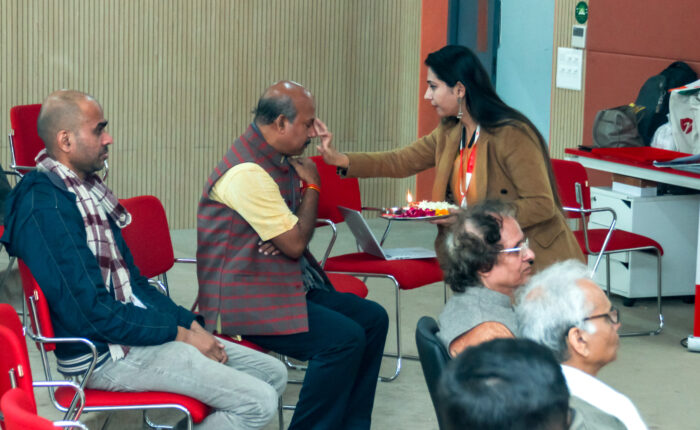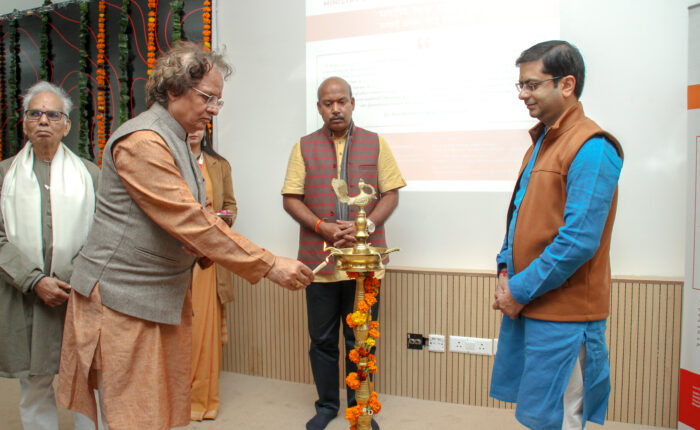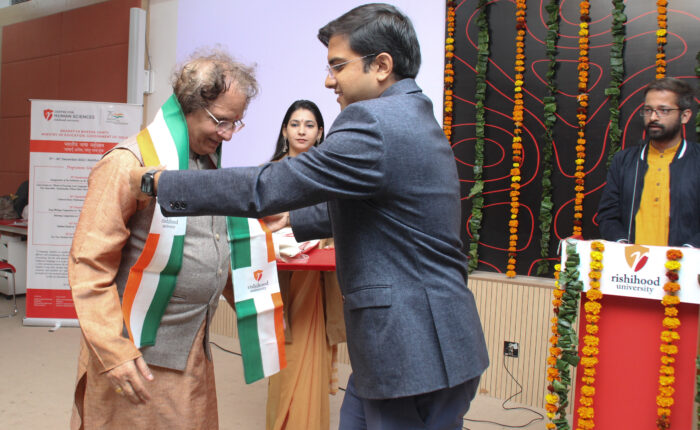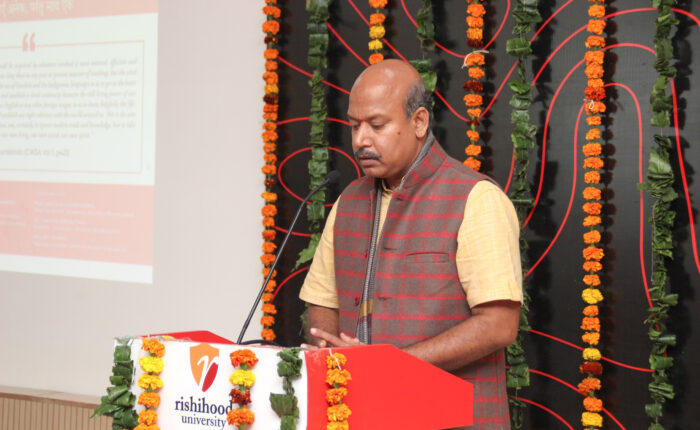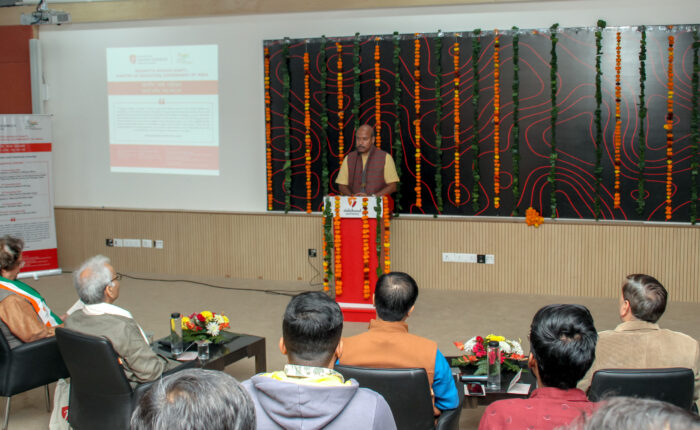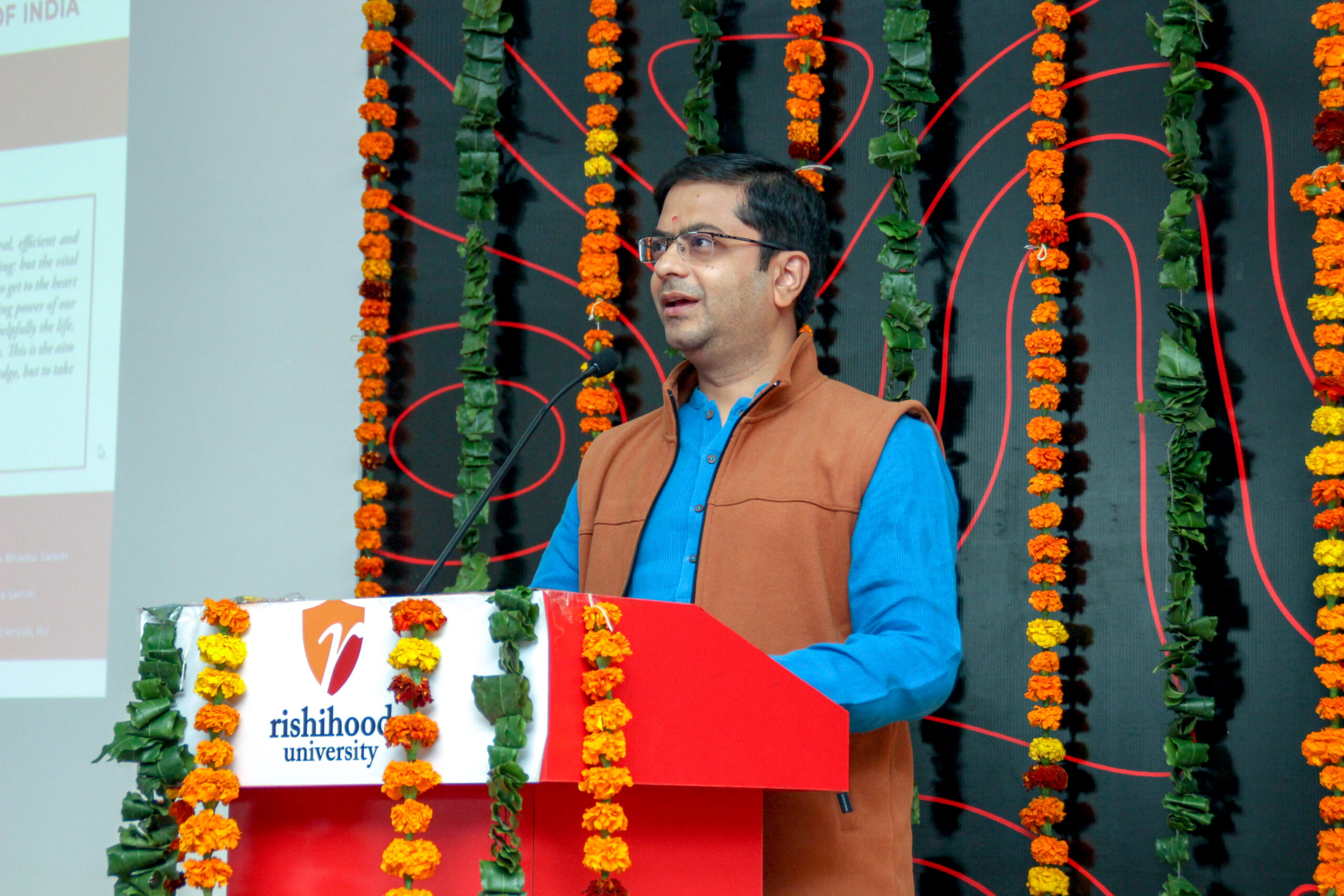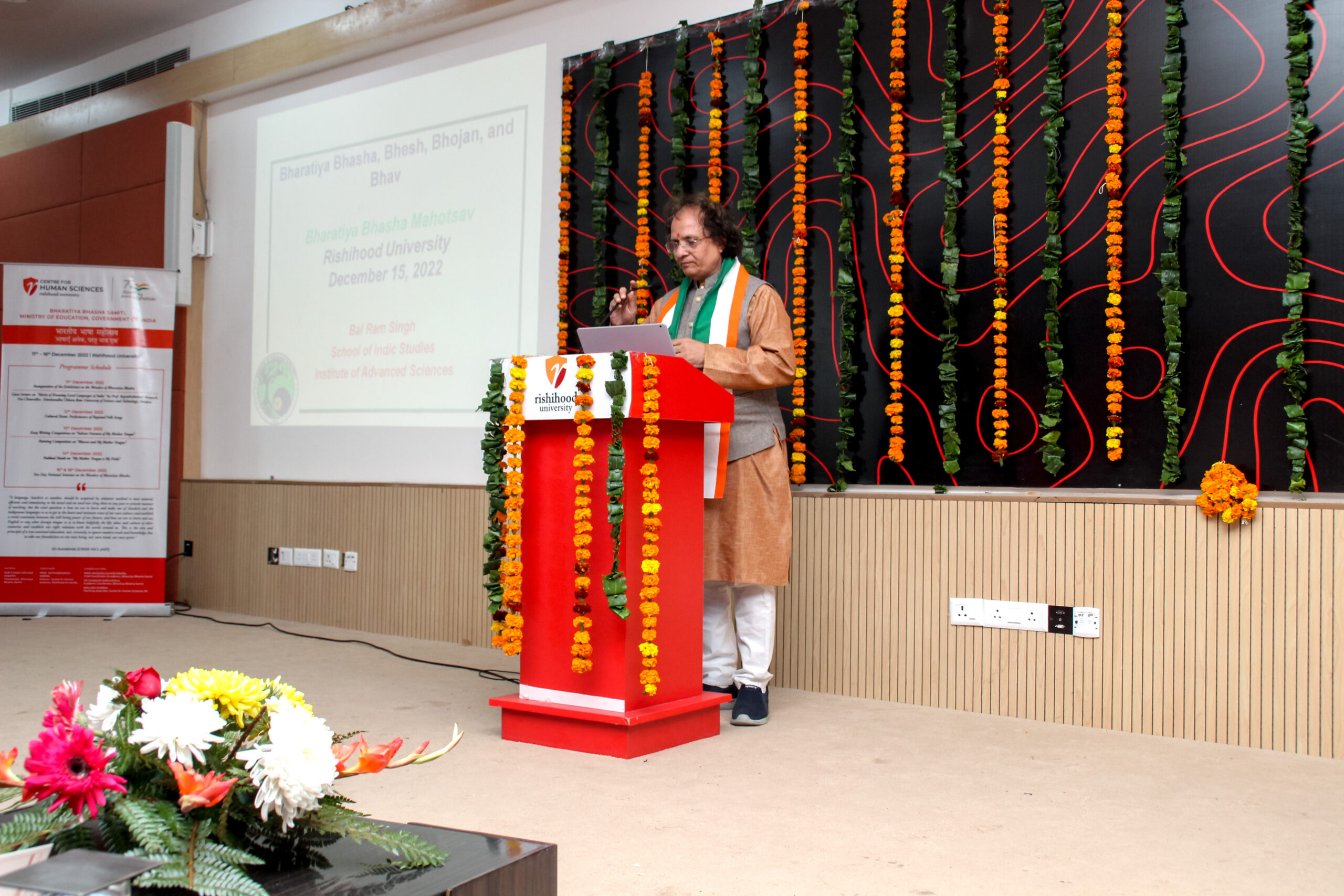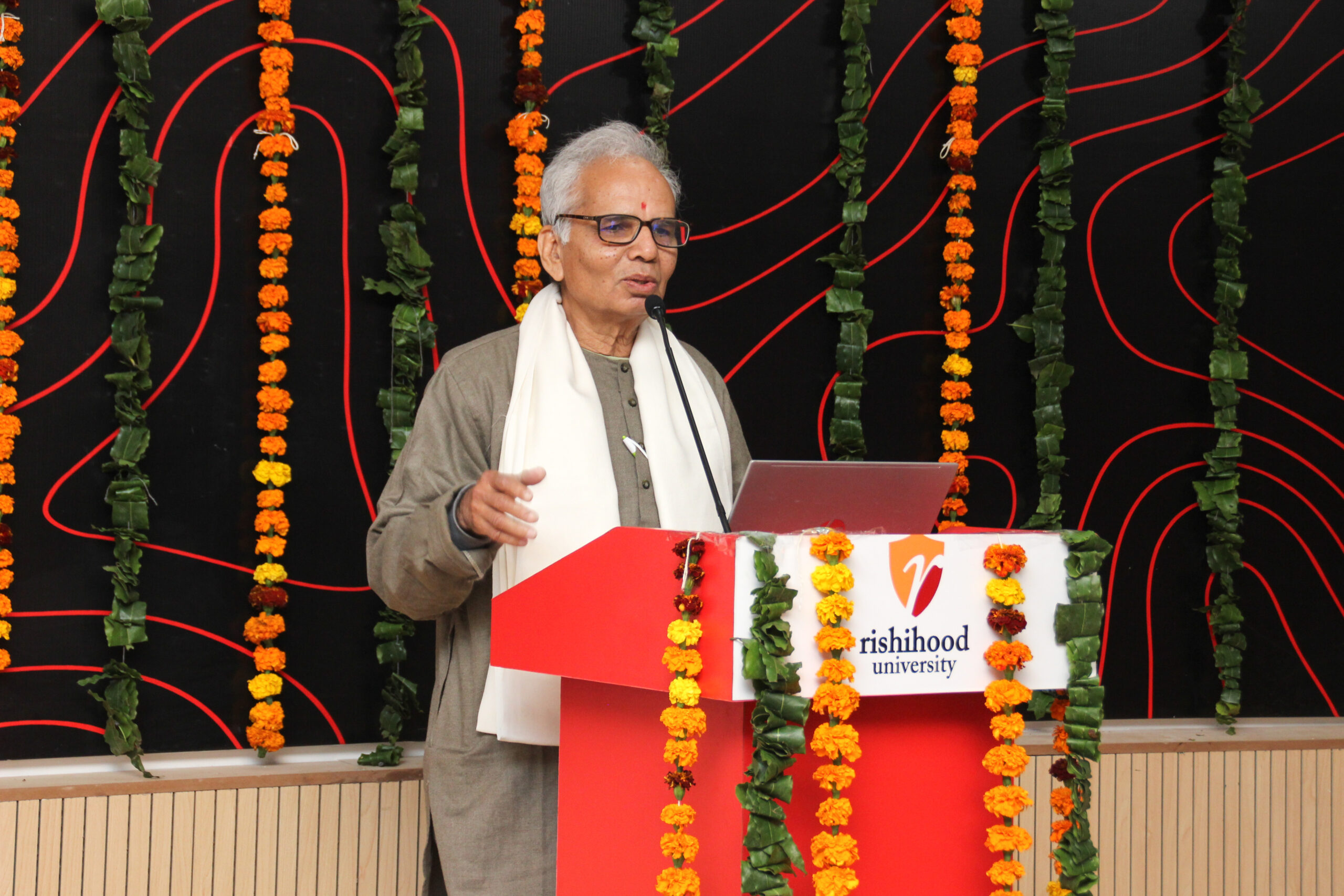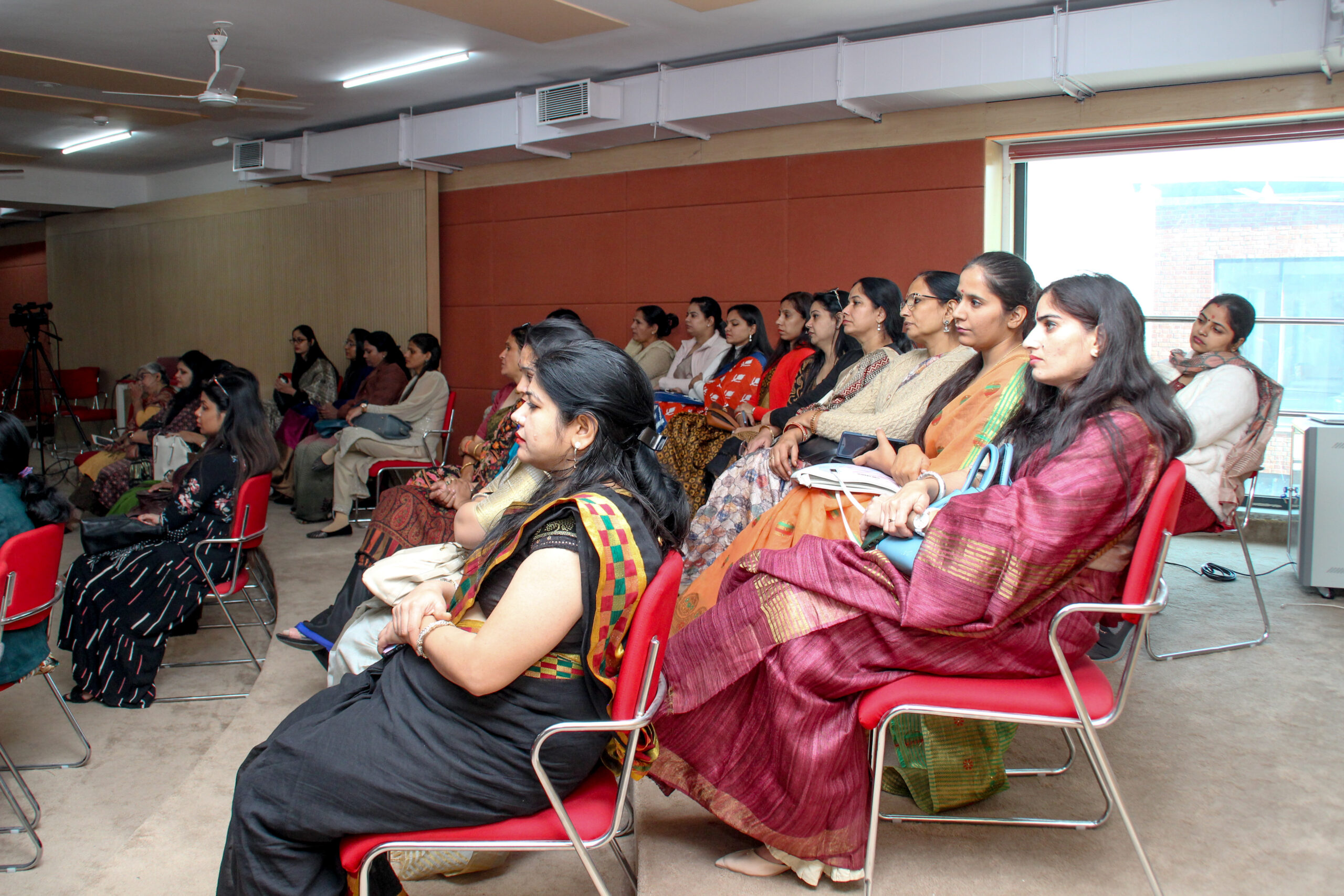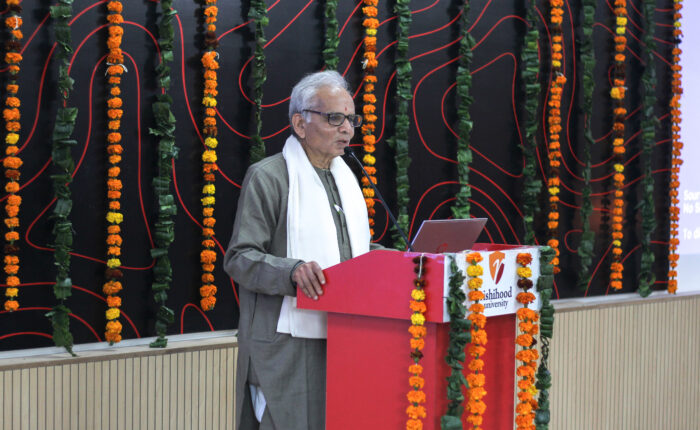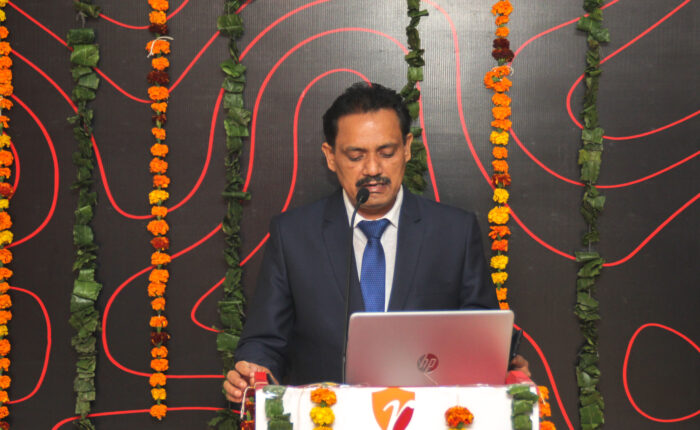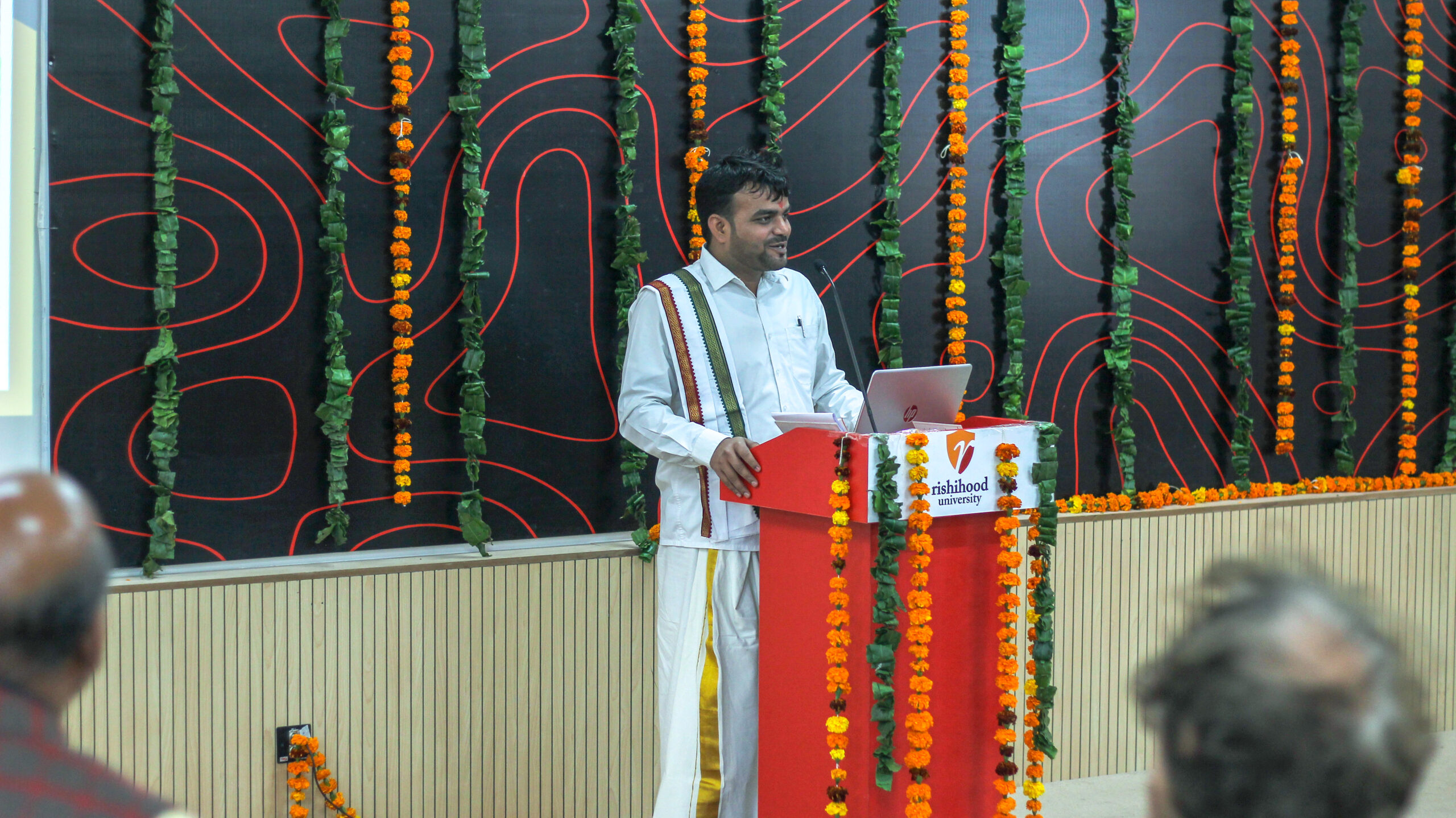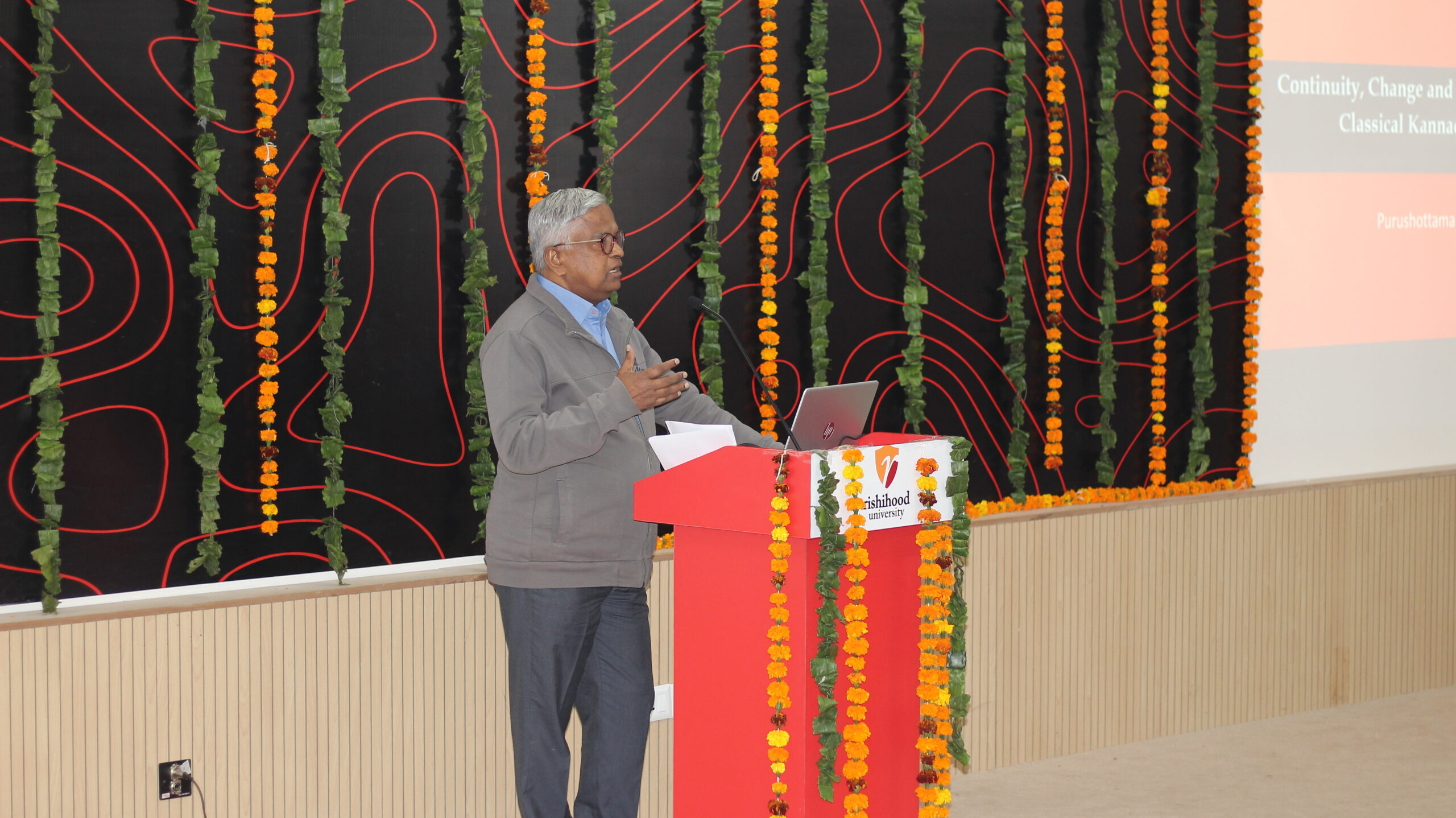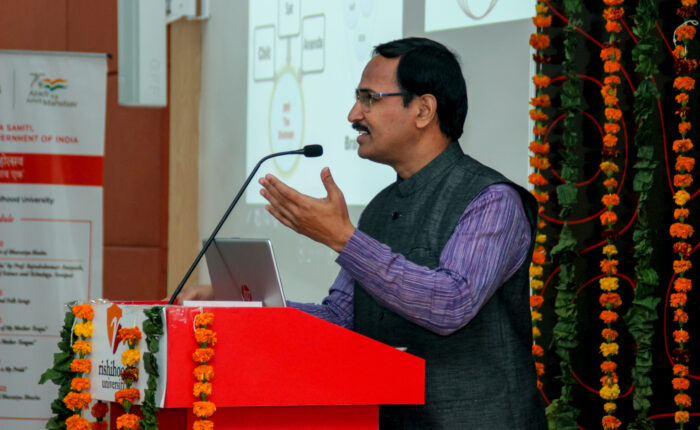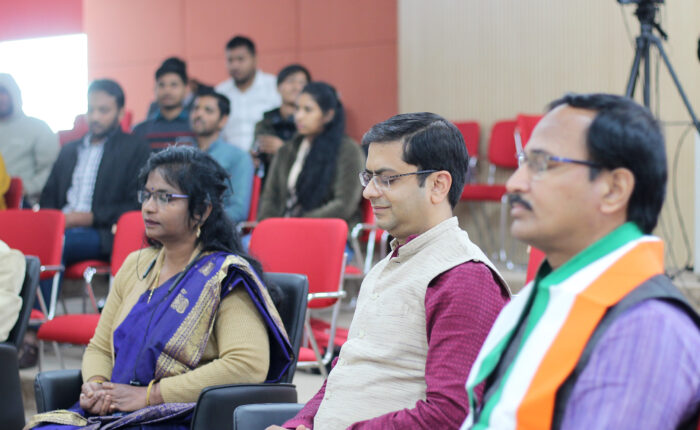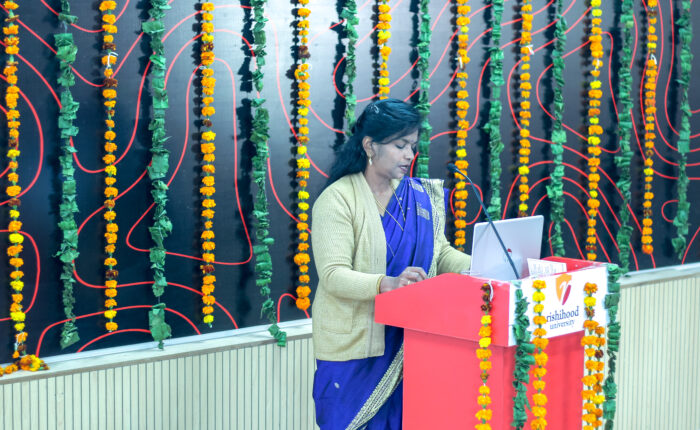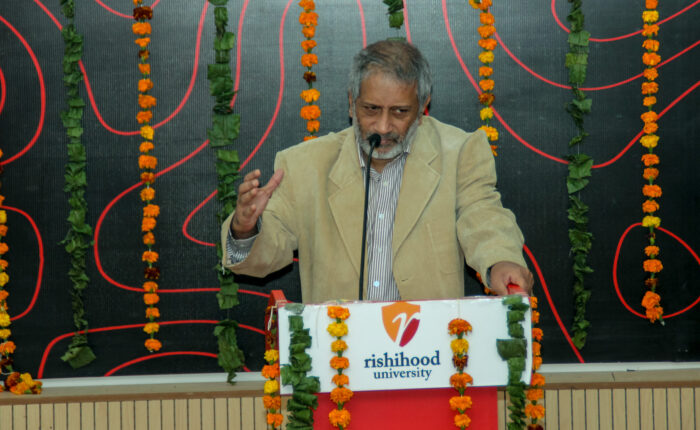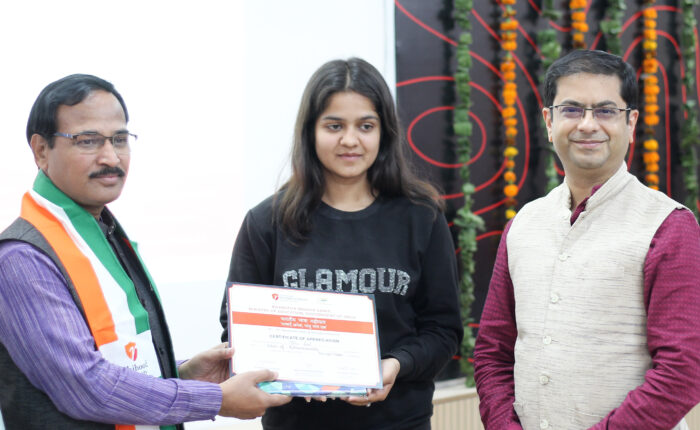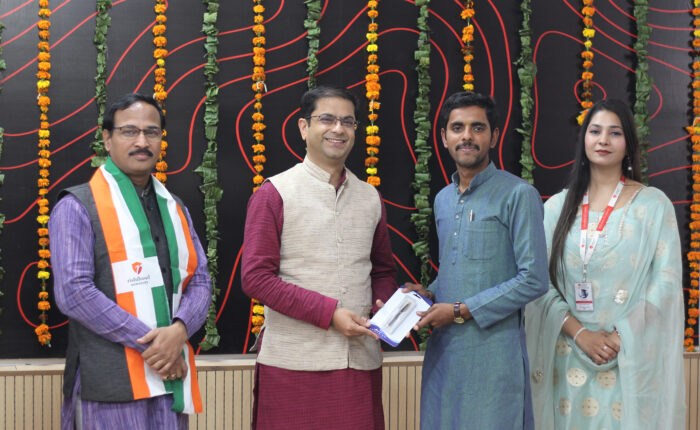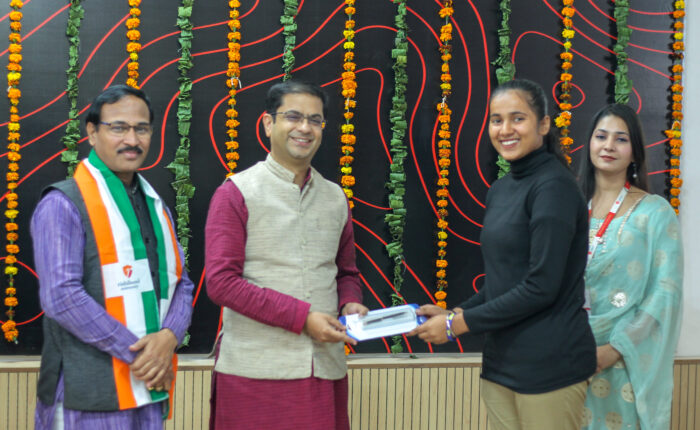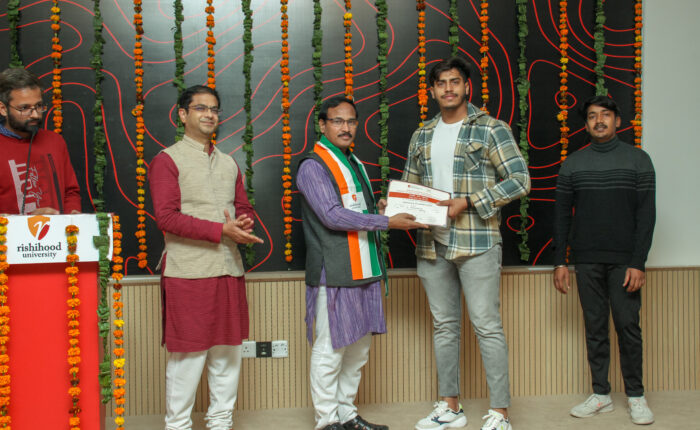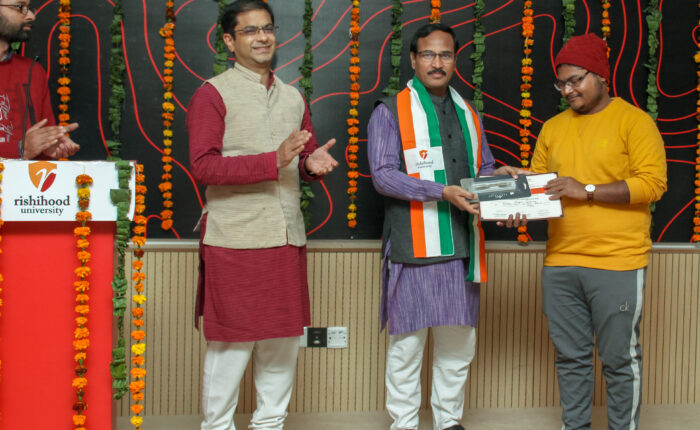The technical session resumed after the lunch break. Dr Subrat Kumar Prusty ji, Member Secretary of the Institute of Odia Studies and Research, Bhubaneswar, Odisha, spoke on the “Origin and Development of Odia Language and Literature”. He deliberate upon the contributions of the Adivasi languages in the development of Odia. He explained how there are two ways through which language is expressed: the first is through folk forms and secondly through cave paintings. He also explained how the songs sung at various occasions like childbirth, marriage and funeral act as the underlying base for the development of literature. Talking about the development of scripts, he explained the importance of cave paintings and how the Brahmi script acts as the basis for the development of other Indian scripts. Tracing back the historical development of Odia, he explained how it borrows not just from Sanskrit but the Buddhist and Jain literature as well.
Dr M Krishna Rao ji, Assistant Professor of Sanskrit at Sri Venkateswara College, University of Delhi, spoke on the development of Telugu language and literature. He traced the history of Telugu in the last 1200 years. He explained the classification and categorisation of the prominent Dravidian languages and pointed out the different names used for Telugu, like Andhram, Tenugu, Andhra, Telugu, Telugu, Vadugu, etc. and the logic behind the use of such terminologies. He referred to various ancient texts like Ramayana, Mahabharata, Manusmriti in which Andhra and its culture is mentioned. Tracing the history of the development of Telugu literature, Dr Rao remarked that most of the ancient literature in Telugu is available only in oral tradition and also pointed out some major authors and works in Telugu. He concluded by pointing out some interesting facts about Telugu language like it is called the Italian of the East because of its syntactic similarities with Italian. Though Telugu originates from Tamil, 75% of its vocabulary along with grammar is similar to Sanskrit.
